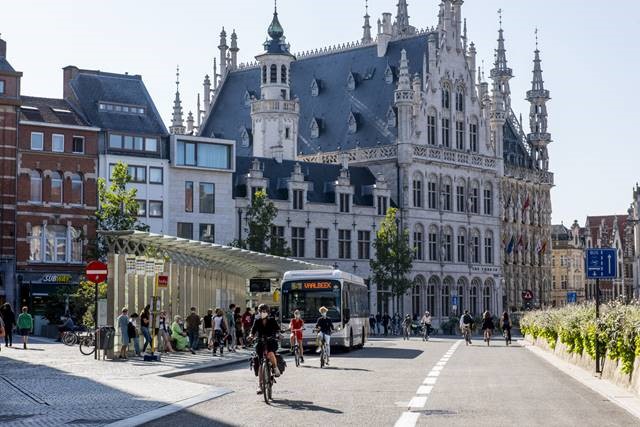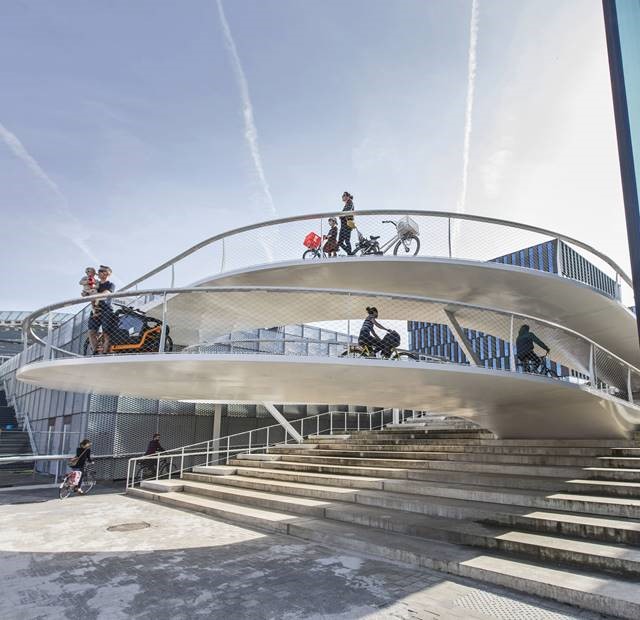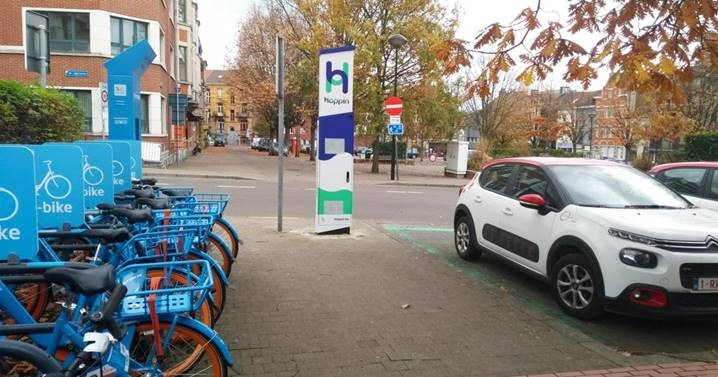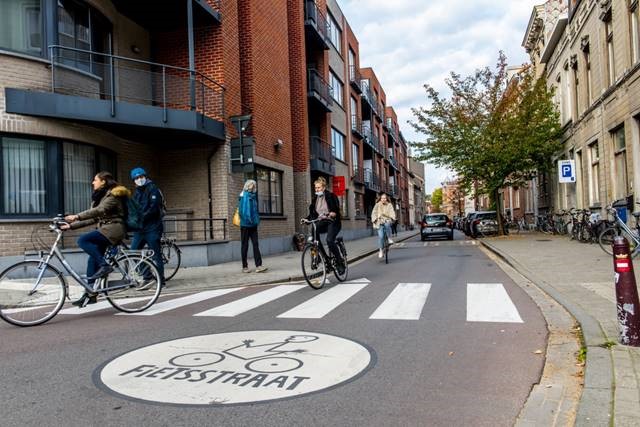
COVID-19 pandemic functioned as catalyst for implementation in Leuven
Last week, we spoke with Eli Nomes in the framework of our summer interviews. In our last conversation, the mobility advisor of the city of Leuven explained her work related to smart mobility and data. Furthermore, she highlighted the close collaboration between Leuven and the other MOMENTUM cities, as well the technical partners.
 Eli, what is the role of Leuven in the MOMENTUM project and which emerging mobility solution (and the respective integration) does your city analyse?
Eli, what is the role of Leuven in the MOMENTUM project and which emerging mobility solution (and the respective integration) does your city analyse?
We are working on case studies, which show how mid-sized cities like Leuven, with limited means for data-collection or data-infrastructure, can adopt a data-driven approach to mobility policy making. Furthermore, we are relying on engaged citizens to tackle the mobility issues that we are facing.
In MOMENTUM, we investigate how we can use data gathered by citizens in traditional traffic modelling tools. These new data sources come with their own challenges, but open a door to a whole new level of analysis not feasible for a city of our size before.
Furthermore, Leuven is the city with one of the highest car-sharing rates across Belgium. In MOMENTUM, we are developing tools to improve the planning of the further expansion of shared mobility and to assess the impact on car ownership and car use.
 Let’s give the reader a quick update; what has happened in 2021?
Let’s give the reader a quick update; what has happened in 2021?
Whereas we are working on several issues, I would like to highlight two of them. Firstly, we are expanding the shared mobility options in our city by rolling out 50 mobility hubs throughout the city, where these services are coupled with public transport options.
You can explore the connection between MOMENTUM and eHubs in POLIS’ ‘Mobilising Mobility’ webinar series.
The first few eHubs opened in 2020, and many more followed in 2021. The installation will be fully finished in 2022. We expect that the MOMENTUM tools will allow us to target our shared mobility efforts more efficiently. Secondly, we are working on a new sustainable urban mobility plan for Leuven, in which we will not only set the general policy guidelines and ambitions for the city for the next decade, but also work on specific, district-level mobility and traffic circulation plans, driven of course by analyses made with simulation tools developed within MOMENTUM.
 Thank you for the detailed answers, concerning all these extensive tasks, do you think that the COVID-19 pandemic still influencing your work?
Thank you for the detailed answers, concerning all these extensive tasks, do you think that the COVID-19 pandemic still influencing your work?
Some measures that were taken during 2020 to create more space for pedestrians and cyclists have gotten a more permanent character in 2021. In this regard, COVID served as a catalyst for claiming more room on the public domain for active road users, an otherwise slow process.
Moreover, working from home is still affecting us, which impacts current traffic levels. Overall, it seems like COVID-19 might have a long-term effect on the travel behaviour, commuter patterns and home office rules, which is very interesting from a mobility perspective, especially in a growing city with relatively high levels of congestion.
What are the immediate milestones for your city in the summer and autumn of 2021?
We are organizing the Cycling World Championships in September, which is a huge event that is occupying the whole administration at the moment, and which will put Leuven in the picture as a truly cycling friendly city. Furthermore, we are looking forward to presenting the first drafts of our mobility plans to citizens and other stakeholders this fall, using MOMENTUM analyses to substantiate the policy choices.


